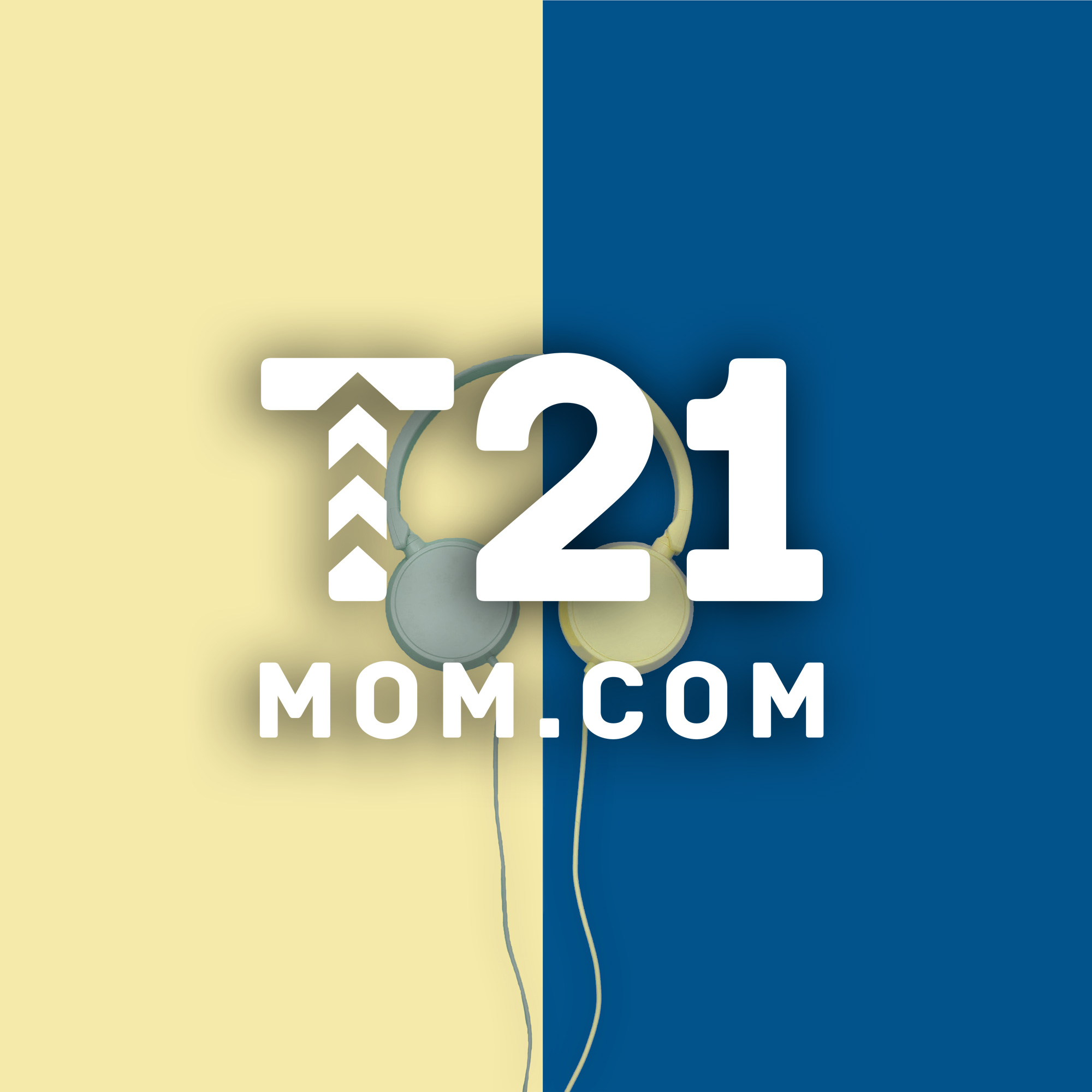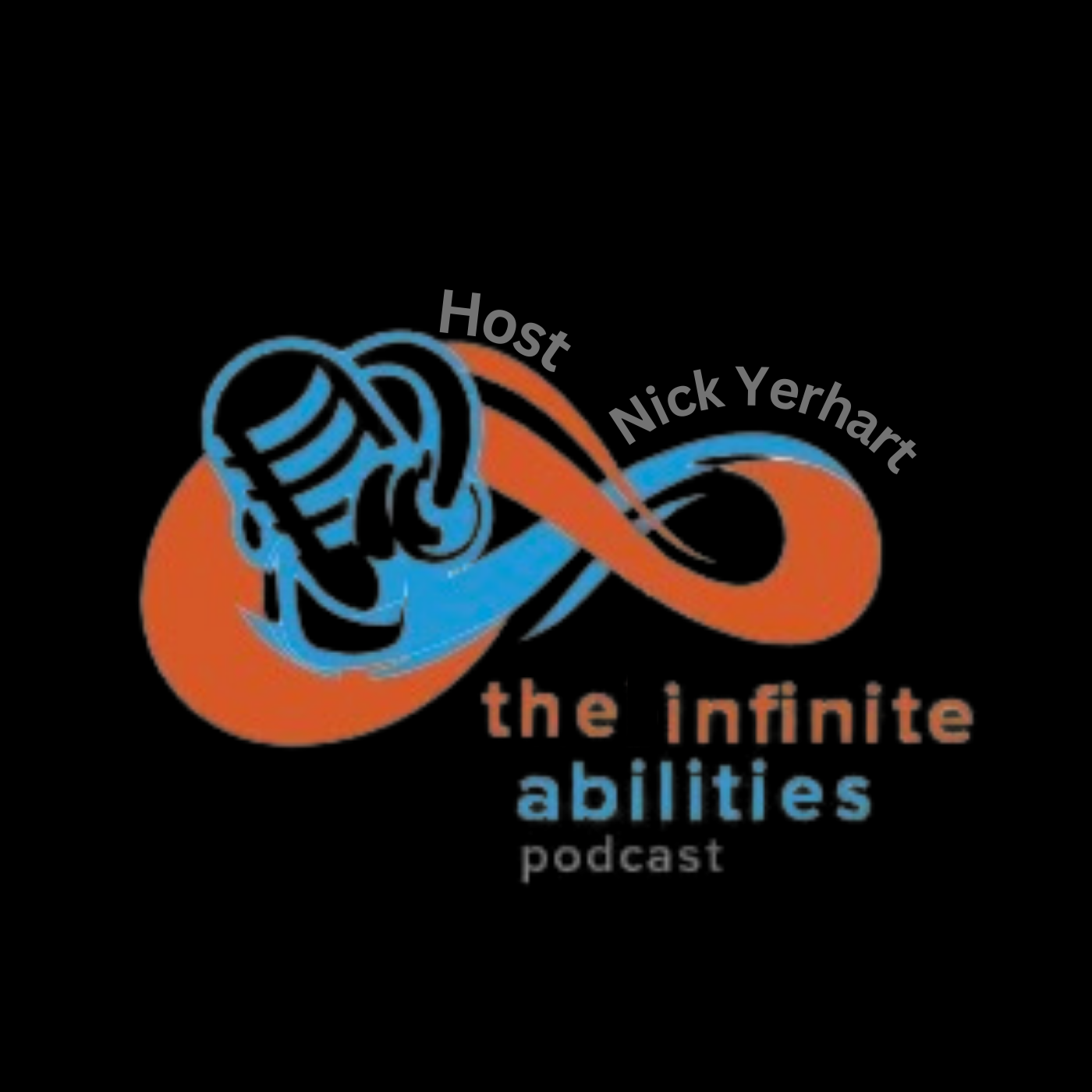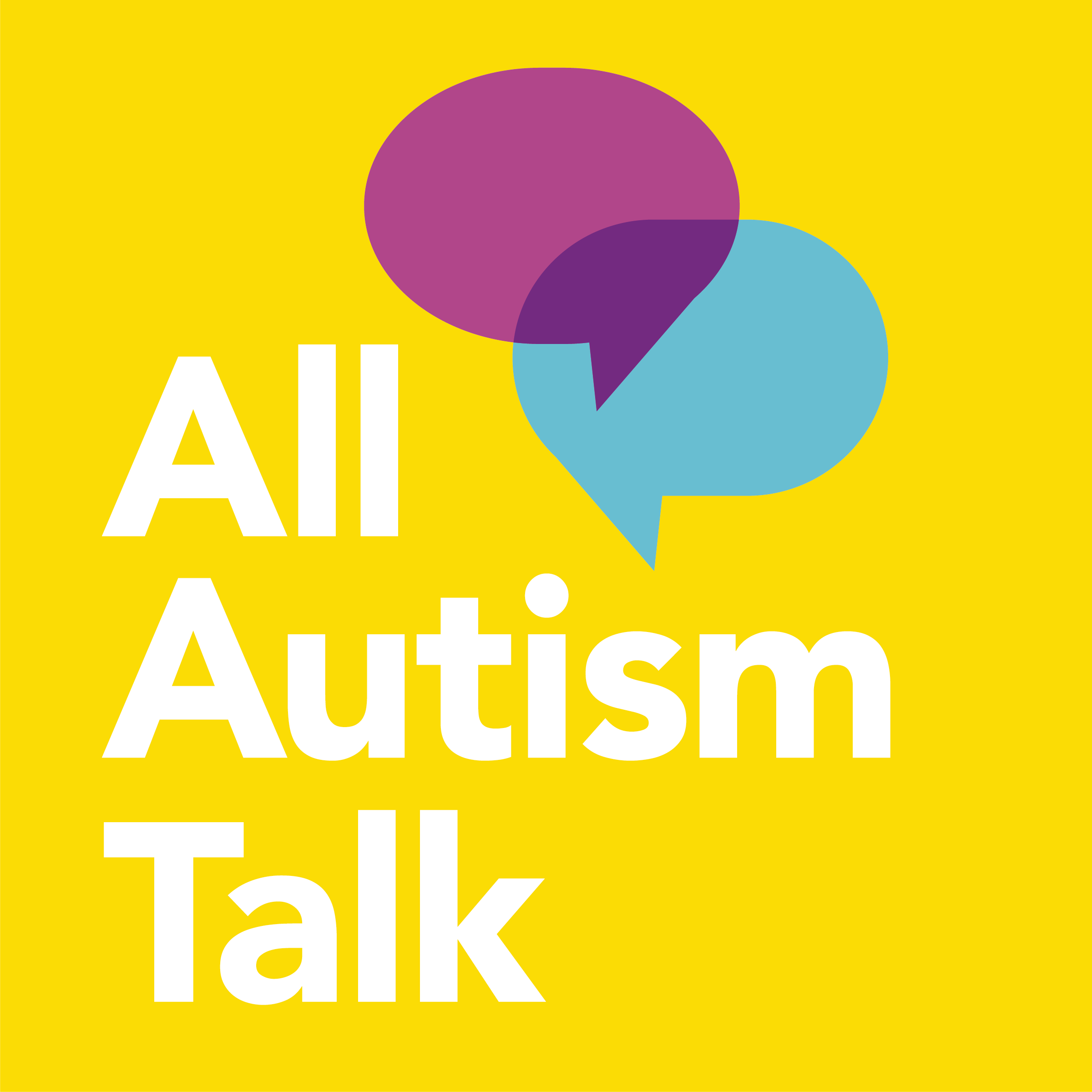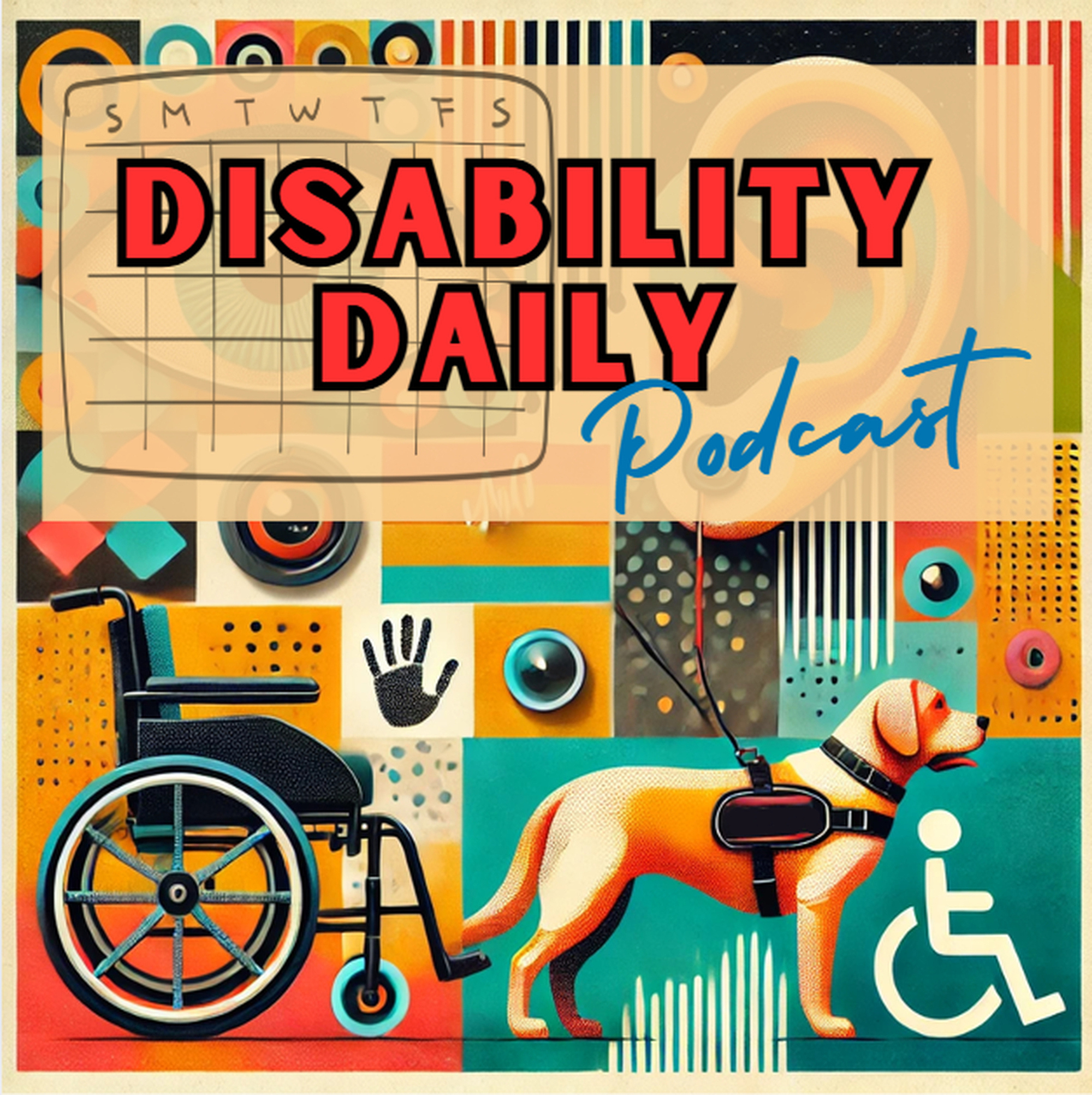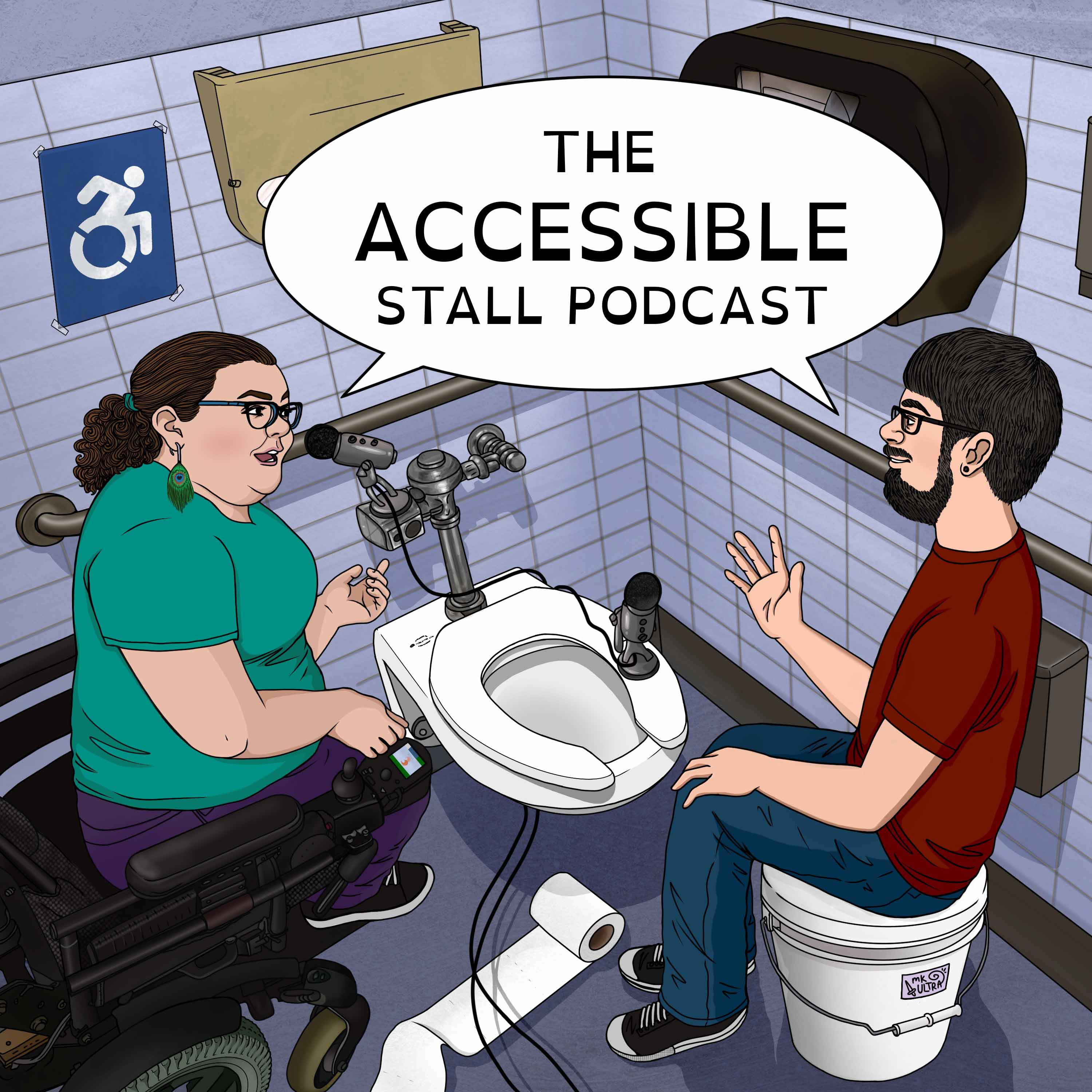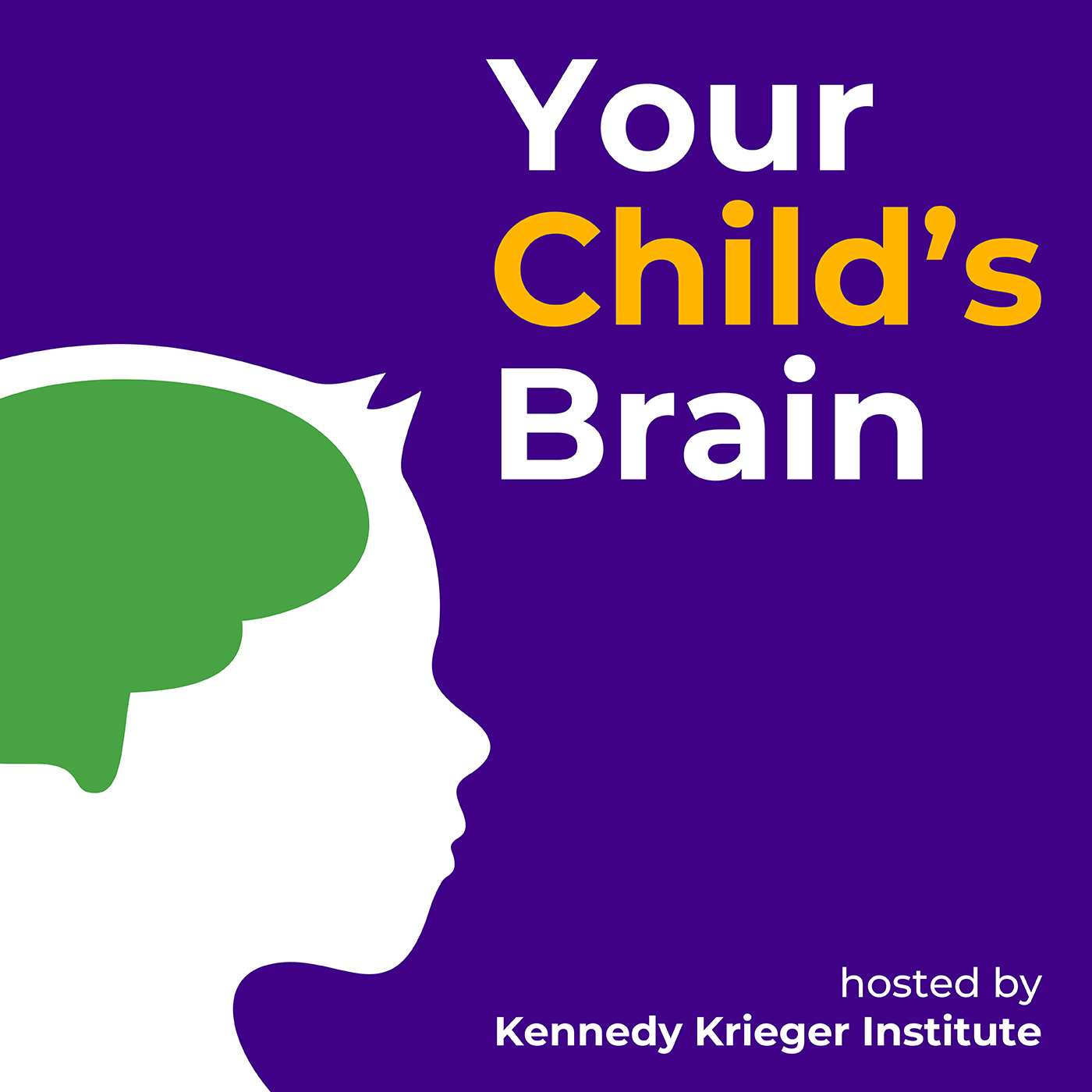
The Post Secondary Transition Podcast
A podcast focused on the ins and outs (and everything in between) of the secondary transition process for families of students with disabilities! Hosts Meghan (Smallwood) and Patrick (Cadigan) serve as supportive guides, leading families step-by-step up each rung of the transition ladder.
Also check out our parent website: https://www.postsecondarytransition.com
The Post Secondary Transition Podcast
056. Community Discussion: Zabrina Kearns - Home Turf Transitions Pt. 1
Hosts Meghan (Smallwood) and Patrick (Cadigan) invite Zabrina Kearns to have a discussion with them about what transition looks like for families in her New Jersey district. Zabrina shares out from her extensive background in special education, applied behavior analysis and her current roles as Work-Based Learning supervisor, & transition coordinator. The trio discuss the differences in transition programs and outcomes between states, the importance of independent living skills, and the challenges parents face in navigating post-high school options for their children with disabilities. Join the conversation!
Episode Keywords:
transition, diploma, program, students, work, New Jersey, districts, community, special education, participants, IEP
Links:
Pascack Valley Regional High School District Transition Resources (site)
To download a copy of a transcript for this episode or any of our previous conversations, click here.
Also visit our Podcast webpage to find links to all of our other discussions; go to www.p2transition.com.
Additional information about post-secondary transition can be found at our website.
The Post-Secondary Transition Podcast Facebook page.
Visit our YouTube Channel to find additional video resources.
Intro/Outro music by AudioCoffee from Pixabay.
Transition music by Joseph McDade from Transistor.
Welcome. This is the Post Secondary Transition podcast. We have conversations around the ins and outs and everything in between of the transition process for families of students with disabilities. I'm one of the hosts. My name is Meghan Smallwood, and I'm a public school transition coordinator, and my co host is and
Patrick Cadigan:I'm Patrick Cadigan, and I am also a public school transition coordinator. All right, so this week, we're going to take a pause in the discussion on expectations that Meghan and I have been having, that, you know, basically calls out each individual school year, because we have an opportunity to speak with another transition coordinator. However, this one is located in the faraway land of New Jersey. Now, backstory, Meghan and I are always touting the benefits of social media, and this is an example of one of those cases. Now we belong to a Facebook group of other transition coordinators, and we post it about what we were doing and how we were looking to collaborate. And our guest today, Ms. Sabrina Kearns answered that call. So thank you for that.
Zabrina Kearns:Thank you. It's I'm so excited to be here and to start this conversation, I too am, can tout social media because I am learning so much from transition coordinators all over the country because of that group.
Meghan Smallwood:Yeah, it's really cool to be able to be able to connect, because we also connected with someone on the other side of the country and other countries. So it's really neat.
Patrick Cadigan:It's done pretty well. I mean, again, we've had those conversations before with families and, you know, social media, but there, there is a lot there that is useful and wonderful, and we, we belong to, like other Facebook groups of families who have gotten together to share out information. And so again, I always, you know, I always preface the social media conversation around there are good things that happen there.
Meghan Smallwood:Well, I think it's so important too, because I have so many families that, as they're planning for transition, they have these dreams of like retiring to a different state. And I think it's just so important they realize it's not fluent fluid amongst the states, like you need to be aware of every other state's requirements or eligibility or whatever it is. So I love that we get to know what else is going on out there, just for my own knowledge, too. So I guess starting with that, can you tell us a little bit about your professional life, like the work you do, how long you've been doing it, and kind of why you do what you do.
Zabrina Kearns:Absolutely. So I actually started as a teacher aide in 1999 in a school designed for kids with autism. So my background is actually applied behavior analysis Discrete trials. That's where I started. That school was pre K to 21 I was with the little guys for a really long time, and I did things kind of backwards. I went back to school after falling in love with this population of individuals, and really the science of ABA is just in my blood. So I did get my bachelor's degree in special education. I got a public teaching position from there, same thing in an ABA classroom, and I pursued my master's in Ed Leadership, initially, because I was responsible. Part of me responsible for so many teacher assistants, so I felt like I had such an awesome background in special education, ABA, behavior management, but I didn't know how to manage my staff. No one taught me how to do that. So getting the Masters in Ed Leadership really opened my eyes to group dynamics and how to give really like your peers, feedback, because it was something I was not familiar with. I did go back to the private school that I originally started in for a while, because they hired me as a supervisor. So I was there for a few years, and then my current position opened, so I'm back in public school, and I actually have three titles here. So my first title is special education teacher. And I do teach. Our cohorts are interesting this year. But back to basics, I teach half day, that's my ultimate ideal schedule, and then in the afternoon, I put on the hat of Work Based Learning supervisor. That's what New Jersey's certification is called it's done through the bog Center at Rutgers, and I oversee all of my students internships, and I'm responsible for our 18 to 21 program. And then the seniors and juniors. Our seniors also do work based learning, and our juniors do something called job sampling, so it's mostly in house, and I can explain that further. And then my third title is transition coordinator. So that is the newest title for me. I am. If you give me a job title and I don't understand part of it, I go right into the deep end. So I enrolled in. Courses at the University of Kansas, so I'm getting a second master's now in Special Education with a concentration in transition.
Meghan Smallwood:So, I guess because in our county, the way and the way it's set up is that every school, we have 13 high schools, every school has a transition coordinator assigned. So how is it, and I know in New Jersey districts, right?
Zabrina Kearns:We do have different districts. I happen to be in a Regional High School District..
Meghan Smallwood:Okay.
Zabrina Kearns:...which is unique. So it's two high schools, four towns. Okay, so are you solely a transition coordinator for your school? Yes, but the way it works, like our case managers also assist with Transition Coordination...
Meghan Smallwood:Okay.
Zabrina Kearns:...if it was a student, let's say in one of the high schools who had a 504 or an IEP, and they are not on track to come to our 18 to 21 program, their case manager would be also transition coordinating them. Meaning, what are your post secondary options? Are you looking at colleges? Are you looking at trade schools? Are you just going to go to the workforce, the students who are coming, whether in all four of those towns, typically, our one high school is really geared to assist the students who are coming up to my program eventually, and not everyone comes up to me at some point, but we're the program that offers the job sampling junior year, Work Based Learning senior year, and then that continues through our 18 to 21 program.
Meghan Smallwood:So how many do you have in your 18 to 21 program?
Zabrina Kearns:I have 13.
Meghan Smallwood:There's, so there's certain requirements in order to go to that program, like, do they have to show a level of independence at work?
Zabrina Kearns:Not, it's not just work. So the whole global theme of our program is independent living period, and that encompasses your ability to live on your own, your ability to manage your time and your finances, your access to the community, whether that's are you engaging in, like social events and clubs? Do you have friends? And then also, can you navigate the community? You know, a lot of our many of my participants here don't ultimately get driver's license, so we're doing a lot of travel training. And then finally, that vocational piece, what does that look like? So the eligibility to come here, you you have to have an IEP. You're not accepting your diploma your senior year. So I do think it's beautiful that they're allowed to walk. I think that's senior year. I mean, you're to be able to hit all of your milestones right with your friends is important. But then ultimately, my students do not accept their diploma.
Patrick Cadigan:and then in in New Jersey, how? How do they refer to that? So where we are, you are either receiving a diploma or you are receiving what they refer to as a Certificate of Completion. How does Jersey refer to it?
Zabrina Kearns:I almost think that varies district to district. I'm in something here called the New Jersey community of practice. So it's all the 18 to 21 educators are getting together all over the state, and it's very interesting to see, even in the state of New Jersey, how different districts handle it, because I've heard of kids in different districts who've got their diplomas. So we don't. They do not. They get their diploma from me on the day they, I hope, host like a little graduation brunch for them, and that day, either they'll get the diploma from me along with their certificate, because I do a certificate of completion for what they did with us, or they can go to the main office and pick up their diploma anytime after that.
Meghan Smallwood:It's so fascinating to me because I know, because I'm originally from New York, and it was all diplomas there, but there were, like, different levels of diploma, because my sister has an intellectual disability, but she still got a diploma, even though she went through like BOCES and like all the vocational training, whereas in Maryland, it's very defined between you get your diploma or you get a certificate because you haven't met the requirements for a diploma. So it's just, it's interesting. Yeah, I mean, there's some students that we have that it's a hard conversation to have, because I think a lot of parents think if they haven't gotten the diploma, they're considered like a failure, or, you know, they weren't able to do it, but, but they still are doing great things. So it's just, it's interesting.
Zabrina Kearns:Right, I mean, what, what I do on intakes here, and I'm, I'm extremely open with my students. We call them participants up here, right? They're not technically students anymore. They are participating in this program. They're young adults. I am very forward with them about their disability. We talk about it. What is it? What are your deficits? And then, how can we become 1% better every single day? And then I also kind of use the phrase like, your IEP is a key that's unlocking doors. Your IEP unlock. Lock the door, get you into my program, right? Your IEP is going to give you the ability to maybe to get a New Jersey, reduced transit card. There's benefits there. There's benefits in terms of the state agencies that are going to be there to support you. So instead of looking at it as there is a failure component for not graduating, you have, potentially, depending on what year you graduate high school or what age you graduated, three years, to really navigate all of these things that, I mean, we have people stop us in the supermarket saying, I wish I had a teacher like you. I wish someone showed me how to food shop. What else does this pro? I mean, I get asked all the time, like, what is this? Where are you guys from? I hear you like walking them through how to use a debit card or the bank is like the best. You know, there's other customers in the bank. Like, nobody showed me how to make a deposit. This is amazing, you know? Yeah. So, I mean, to be able to get those kind of life skills and have someone there coaching you through it is not a failure. It's really giving you such an amazing foundation that you can build upon.
Patrick Cadigan:Even within just the state and the districts and how differently they do things, how what is the level of collaboration like?
Zabrina Kearns:In my own district or across districts?
Patrick Cadigan:I suppose a little bit of both.
Meghan Smallwood:Well, it sounds like the 18 to 21 rule. It sounds like there's a lot of teachers around the district or across the districts that you collaborate with.
Zabrina Kearns:So we have a phenomenal network. I actually it's written on my board now, because I was telling my participants about it today. We connect with at least eight to 10 other 18 to 21 programs that are right in my county, and we on our CBI trips. We meet up very frequently.
Meghan Smallwood:I love that.
Zabrina Kearns:morning with one group, and then my other cohort is going bowling and having lunch with another group. But I also rent one of the senior centers here, and what we've been doing is actually having larger gatherings. So many of the 18 to 21 programs have been able to get together. So last year, we had an ugly sweater party around the holidays for Valentine's Day. We actually did a Valentine social, and we made like the staff here. It was awesome. We made like 50 hearts, and cut the hearts in half, and there were questions on them, and they had to all go find, you know who had the other half of the heart? And you know, because even within my program, having 14 students, that doesn't mean everyone's friends or wants to be friends, everybody's ability levels are pretty different. So the more programs we get exposure to, the chances are you're finding maybe like minded individuals, like leveled individuals, that you could hang out with and and strike up a friendship with. And it's helping the staff. So we then, I get to collaborate with all these teachers and other transition coordinators to see how they're running things. And it's curious, because we're all doing things pretty differently. So our program, for example, my students, rotate their work-based learning every 12 to 13 weeks. And then some of the other programs here, once they're in a job site, they're there for the entire year.
Meghan Smallwood:Oh, wow. So when they leave at 21 what is the outcome from many of your participants? Do they end up going in, right, straight into work? Do some of them go to, like, trade school or post secondary programs?
Zabrina Kearns:So I'm going to be transparent with you and say this is probably the hardest part of my position, because at that point, it's totally parent driven, and we put out so much legwork, so much preparing, I often say like we're passing you the baton, and I don't want to pass you a fuming baton, so I'm going to do everything that I can to make it smooth. And then when we look back, sometimes a lot of it wasn't pursued. So the ideal is work. New Jersey is a work first state. A lot of the hesitation that comes around that is the blurred lines between, how much can I work without losing my SSI body plan and things like that. I am proud to tell you, we have many students who get hired, and it's the sites that are coming to me."Hey, so and so is doing a phenomenal job. Can we can we offer them work?" So I have many students who do leave here with part time work. I would say a greater majority are leaving and going to day programs. Are they set up in the day program by the time they. Leave here, not necessarily. We try to in October, really start saying, like, now is the time to start doing visits and getting yourself on waiting lists. And I think, what happens sometimes? And listen, I'm a mom too, so I get it. You think June is farther away, farther away than it actually is, right, and then all of a sudden, like, April hits, and everyone's like, we have three months. We're trying to, you know, part of my professional learning community last year was, how could we make our transition timelines more accessible, more less overwhelming, right? Because there's so many steps, and ultimately make that align with what you'd like to see after you graduate, or what the parent wants to see after the participant graduates,
Patrick Cadigan:I think that plays off of the conversation that we've been having, in the sense that where we are our county started with this, like, let's break transition down. You do a little bit of it each year. So there are like steps to go. We took that idea and we put basically just together some resources, and then that was where that conversation started. Like, hey, if you are a freshman, if you are a diploma bound freshman, these are some of the things that the families can do. If you are a certificate track family, these are some of the things that you can do, and you try to, you know, break down that process a little bit because it is a lot, and it is very overwhelming.
Zabrina Kearns:And does your, I have a question for you guys, does your state offer alternative programs to the 18 to 21 program that the public school offers?
Meghan Smallwood:So no, not really. So we're in the same county in Maryland, and it's also an employment first state. So everything you said as preparing and handing the baton over to the parents is exactly what we experienced, too, and we still see a lot of delay, even with all the information and resources that we try to give them after they leave, whether it be mostly day program, they have an option with the state funding to do something called self directed, yes, where you have that as well. Okay, so we see a lot more doing that, where there's different programming options, like Community Development Services, where they can go for part time, but then they're still trying to fill that time with other volunteer opportunities, community exploration, those kinds of things. So it's a daunting task. And again, it's frustrating sometimes, to be honest, when you see all these great things happening when they're with us, but then they leave and it doesn't happen because it's just too overwhelming, or the programs have waiting lists, or whatever the reason may be. But in terms of our programming until they're 21 within our county, we have a work program. They usually start in building when they're, like, ninth or 10th grade. As they get a little older, and it's completely individualized, but they'll go out in a group, out into the community for work if they show independence. We bump them up to like, work study, where they have their own work site. And we do have a program for the 18 to 21 year olds, but it's very small in our county, and you have to show a level of independence to be in that program. Aside from that, they usually remain in their school buildings until 21 and that's something we I know we would both love to see change and have a different option, because you know, when you're 21 and you've been sitting in the same building for six or seven years, six or seven years, and now you're with 14 year olds, not...
Zabrina Kearns:Very calculated about not doing that. And I wish I could show you. I know this is audio only, but my district actually rents a two family house that's a simulated living environment.
Meghan Smallwood:So you have a house that you can actually, like, bring them to to, like, do some of these things for...
Zabrina Kearns:Yes, so...
Meghan Smallwood:Wow, I love that.
Zabrina Kearns:...it looks, you know, it's set up like a house. So we have a kitchen, we have a living room area, and if you see behind me now, there's like a folding bed, so we pull that out every now and then. But we are, they just purchased upstairs. I'm so excited. So after the new year, we'll have access to the bedrooms upstairs. We're gonna have a simulated bedroom. There's laundry here now, so some of the stuff we used to have to go out to do, we'll be able to do here. But every Monday, my group goes out food shopping. They buy all their ingredients to make their own lunch, and then they make their own lunch here. Every day, they're solely responsible for cleaning this house, so the custodians will come in for backup, but they are learning to do all of the chores here, changing light bulbs, mowing the lawn. I mean, we do it.
Meghan Smallwood:That is so cool.
Zabrina Kearns:Yeah, it's a really neat concept that they developed here.
Meghan Smallwood:See, I love that, because I feel like our focus is solely around employment. You know, we do functional they have classroom time for functional skills, but actually learning things like in house that they're going to need to know, especially the ones that cognitively want to, you know, they talk about moving out on their own, getting married, like having their own place, those kinds of things. Those are the skills that I would love to work on with some more of our students.
Zabrina Kearns:Yeah, varying, varying levels.
Meghan Smallwood:Yeah.
Zabrina Kearns:I have students who are asking me questions like that, like we'll do breakout kind of sessions, right?
Patrick Cadigan:So this is where we'll pause our discussion with Sabrina. Make sure to come back for our next episode. We would love the information from this and all our other discussions to reach as many families as possible, and we need your help to do that, so please like, follow and share out our podcast. You can find our conversations on all the major podcast platforms, including Apple, Spotify, YouTube music, and that's just naming a few. So please share and share often. You can always find the links to the information from this discussion in our show notes. Check out our YouTube channel. We've done some of the legwork for you by curating videos of topics that revolve around transition. We have playlists that cover guardianship alternatives to guardianship ABLE accounts, and there's still more to come as we're finding videos that we think will be valuable to use. So please be sure to subscribe there as well. And then finally, check out our website, which is full of information and links to resources around the transition process. So make sure to go to www.postsecondarytransition com. We thank you so much for the time that you've spent with us, and look forward to talking again soon.
Meghan Smallwood:Yes, definitely.



